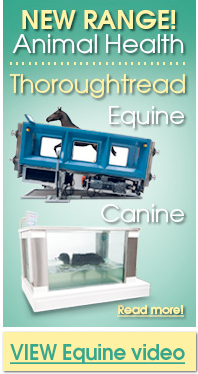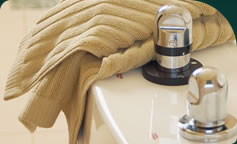Water Conservation in the Wellness IndustryBrian Gay This is a transcript of Brian Gay's presentation to the Australian Spa Industries Association
For some of us this sound is relaxing, soothing reviving. For more and more of us this sound makes us want to stand and scream turn the tap off you're wasting water. At a basic level water is life, life is water. We cannot exist without it. On a personal level - water is precious to me - to my kids in being able to take a bath and swim in rivers etc. I've become water cop. Water as a precious resource is so top of mind for most people that its also my kids who challenge the way we use water at home - 4 minute showers, not leaving the tap running when you're brushing your teeth, capturing and re-using water. On a professional level our jobs are water. We all rely on clean, accessible water to provide our treatments. My livelihood relies on my customers and theirs being able to use water to provide therapy currently without water I have no market, I have no job People can live without our products and services but they can't live without water so unless we put water on the agenda in our decision making we run the risk of water taking away our livelihoods. If we're smart - water can help us innovate to create an industry that is sustainable and will continue to grow. Our industry is booming. I know this because that's what the stats say and that's what I see at trade shows For those of you who don't know my company Hydroco manufactures spa equipment including: hydrotubs, vichy showers and capsules, and other well-being products such as our hair washing machine. There are more people interested in well-being than ever. Unlike years ago when a spa treatment was considered a pamper product for the rich, we now have products and people at all levels of the socio-economic spectrum Our customer base is also broadening as more men, so called metrosexuals spend more of their money on well-being What is different about today's client - is how more savvy they are. They have greater access to information and a broad range of choices on how to spend their disposable income We compete with a broader range of competitors - not just each other but every leisure dollar that is spent Because client expectations are so high - it's becoming more difficult for spa owners to enter the market. Client increasingly expect elaborate spa set ups in convenient or luxurious locations which creates high rent and large set-ups costs We are also seeing a trend towards spa as therapy. The growth of the non-prescription medicines market and the increasing focus on peoples health will see the convergence of medicine with spa. The development of 'well-being' centres of the future encompass a broader customer offer is on the horizon. So we have customers with greater expectations, more access to information who are more discerning. We also operate our business at a time when communities trust in business is at an all time low. 90% of people do not trust business to operate ethically. People do not trust business to do the right thing and are increasingly demanding Governments and non-government organisations to intervene if business are seen to be doing the wrong thing by people or the environment. With diminishing trust of business comes increasing regulation. We have seen the pattern many times - the Government give business the chance to self-regulate and if that fails to meet community expectations the Government is forced to regulate. Example: As a result of community and NGO pressure the Environmental Protection Authority was set up in each state to monitor the environmental behaviour of business. They have a big stay in project approval and issue fines and orders to businesses who don't comply. We have also seen the rise of community groups and non-government organisations successfully lobbying the public and the government to listen to them when it comes to business behaviour. As you can see - NGO's are more trusted than business and government, so unless we can keep them at bay - we will become a target. A recent example: GMO canola crops cancelled in Australia due to community pressure. James Hardie, National Australia Bank poor reputation The other environment we operate in, especially in Australia, but increasingly all over the world, is within communities where the resource of water is increasingly precious. Water is now on everyone's agenda - our water crisis has become a national issue of major proportions. Australia is the driest continent on earth. Water is considered to be one of the top election issues for this year The Governments in all states of Australia have adopted mandatory water restrictions There are a range of government and business driven public campaigns encouraging people to reduce their consumption of water and the government is placing heavy pressure on industries such as agriculture to improve their usage. Currently agriculture consumes 70% of the water resource used in Australia. Water used to be a right, now it's an asset. So in setting the current and future business context - We have a savvy customer, a government who likes to regulate, and an asset critical to our business on the national agenda as a resource we need to take care of. Our customers come to us for an experience. If that experience is marred by their own feelings of guilt because they think they're contributing to environmental degredation with every running tap - we will fail to meet their expectations and they won't come back. Now this might be the tiny minority now, but if all the water saving campaigns are successful in their desire to change the way we feel about water, the majority is a reality. For me, all of those things point to the fact that we need to take action as an industry before someone does it for us. What would we do if the taps were turned off on us tomorrow?
|


